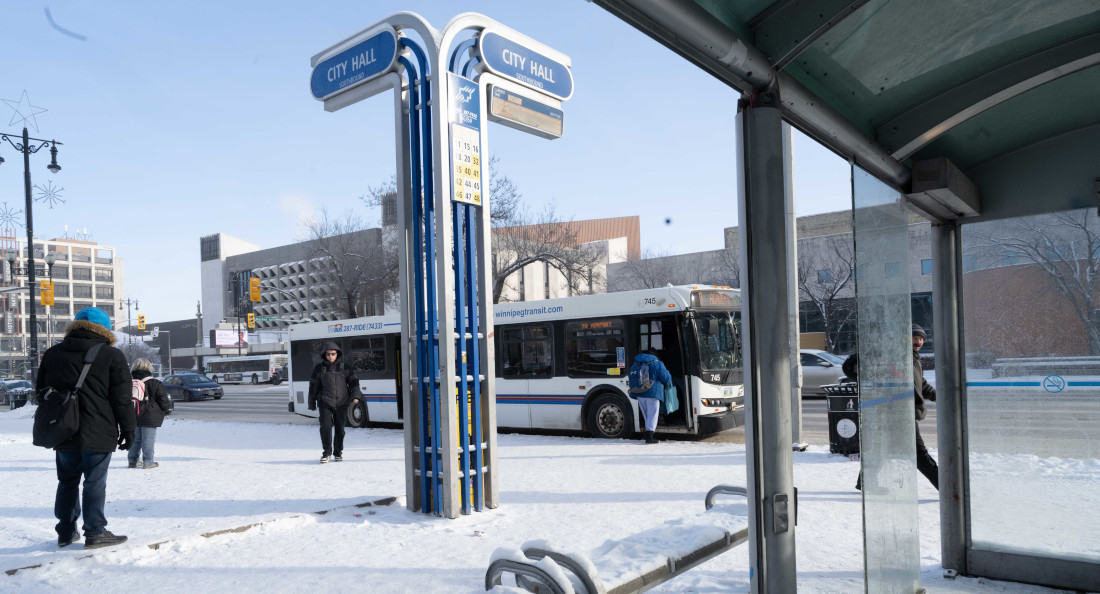Winnipeg Transit in crisis
Poor service and working conditions make busing terrible
Unreliable. Overpriced. Absent. These are a few of the more polite words I’d use to describe Winnipeg Transit in its current state. For people who take the bus regularly, this isn’t news. For everyone else, I’ll bring you up to speed.
Winnipeg Transit’s service has gotten substantially worse since COVID-19. The City blames the pandemic and decreased ridership, but viewing Transit as a profit-making enterprise is part of the problem. Ridership may simply be down because the service is terrible.
Riders are often lucky if buses show up on time, if they do at all. Buses are frequently late and regularly vanish from the live-tracking app Navigo (according to Transit, buses disappear from the app when they have fallen too far behind schedule). But this frequent lateness creates a compounding problem where subsequent buses will be late, as they now must deal with increased loads.
By the way, Navigo doesn’t account for road closures, so it’s worth paying attention to construction, detours and parade routes. A full-fare ride costs $3.25 cash, and transfers expire after 75 minutes – regardless of delays.
Winnipeg Transit also mishandles complaints. In February 2023, I filed a complaint after missing an appointment due to their (lack of) service. I haven’t received a response, and I’ve also had to reopen the ticket four times to date, as 311 keeps marking it as resolved.
The City can partially blame its poor service on a lack of drivers, which looming mass retirement will only make worse.
In many ways, it’s hardly a desirable job. Transit operators work between seven-and-a-half and eight hours a day – often as split shifts that may take up to 12 hours total. New bus operators are required to work evenings and weekends and “must provide maximum flexibility” to be scheduled any time of day and day of the year, according to the Transit website.
Schedule selections are based on seniority, and new hires shouldn’t expect to take summer vacations for their first 10 years of employment. Transit itself warns candidates that “the shift work required will have a definite impact on your personal life.”
Drivers undergo all this for a starting wage of $21.63 an hour. Is it surprising they were voting for a strike?
A November CBC Manitoba article showcased a couple who were going car-less to try to reduce their carbon footprint. They gave up after less than a year because they found Winnipeg Transit too unreliable and unsafe.
They had the luxury to go back to driving, but for many, that is simply not an option. The City is holding low-income riders hostage, while also depending on them to cover operating expenses, all while spending funds on projects like rapid-transit corridors that increase access to Winnipeg’s wealthier southern neighbourhoods.
The City’s safety strategy will be to put new security officers on buses (despite reports from other major cities showing how problematic and ineffective it is), led by a former Winnipeg Police Service member. I suppose a quarter of the city’s budget going to policing wasn’t enough. Why fund transit further when you can divert more of the coffers to enforcement?
Published in Volume 78, Number 13 of The Uniter (January 10, 2024)







